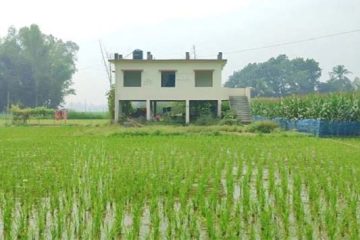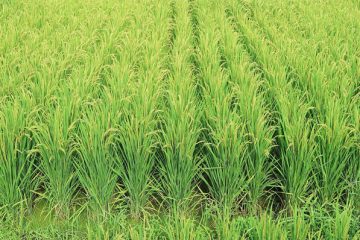Obaidul Ghani
The production of winter crops, particularly wheat and potato, could decline by 25 to 50 per cent due to erratic weather, experts fear.
Persistent high temperatures at night-time are likely to cause a drastic yield deficit of winter crops like wheat, potato and lentils which need cooler weather, they said. Agricultural experts expressed concern that if the situation continued for a longer period, the production could plummet significantly and prompt the farmers to switch to other crops.
The experts claimed that particularly the winter crops like wheat and potato need around 10 to 13 degrees Celsius night temperature during the season while the meteorological department said that the present temperature in most of the potato- and wheat-growing regions like Rangpur, Rajshahi and Dinajpur was more than 14 degrees Celsius on an average over the past few days.
In Rangpur region, the minimum temperature was 15.2 degrees Celsius – 3.4 more than the normal temperature – and in Rajshahi and Dinajpur region, it was 14.6 and 15.5 degrees respectively, almost 5.3 degrees more than the normal temperature, said an official at the meteorological department on Saturday.
The prolonged warm weather in winter could affect formation of potato tubers in deep soil, they said. The experts suggested that in such cases farmers could grow maize and sweet potato as an alternative to wheat and potato, to ensure food security.
According to statistics provided by the Department of Agricultural Extension, production shortfall of wheat and potato per hectare could range between 25 and 50 per cent due absence of cooler temperatures in winter.
Besides, cloudy and foggy weather would cause blight in potato crop and reduce its yield drastically, said the deputy director of the DAE, Anil Chandra Sarker.
About wheat production, the DAE official said, ‘If temperatures are cooler in late winter, it would be favourable for a good wheat yield but vagaries of weather like unexpected rise in temperatures when the winter is at its peak, would certainly affect the production.’
The erratic weather is also likely to affect the production of some other crops like lentils and oilseeds and could even cause outbreak of diseases in the crops, the experts warned.
The persistent high temperature in winter may also cause leaf-spot in mustard, stem phylum in red lentil, leaf-rust in wheat and late blight in potatoes, they said.
Courtesy: newagebd.com






